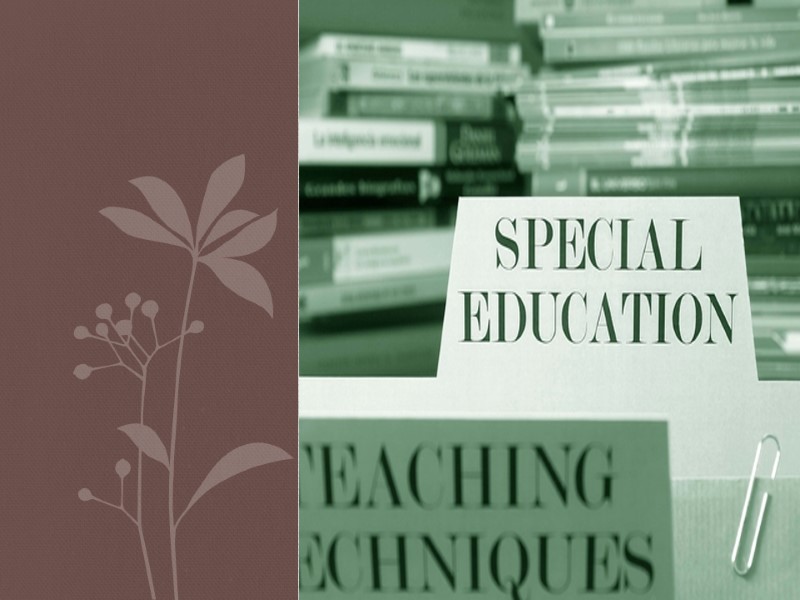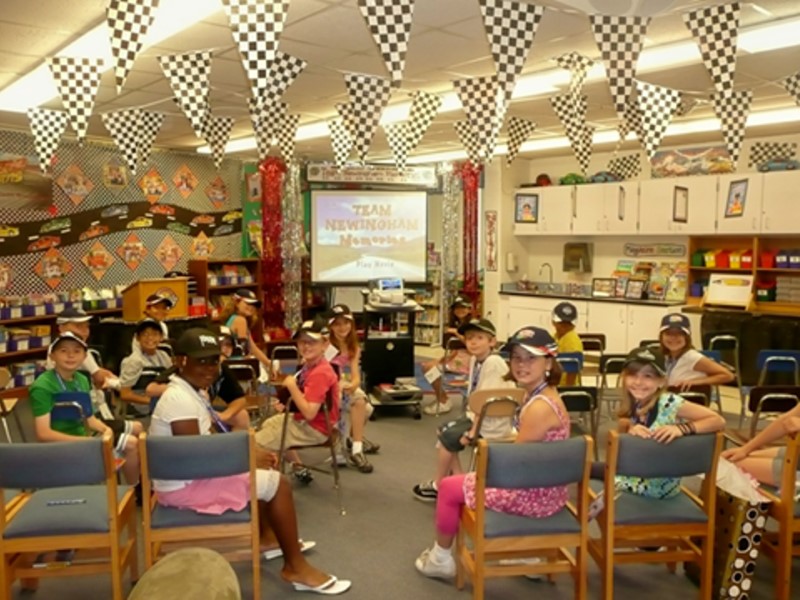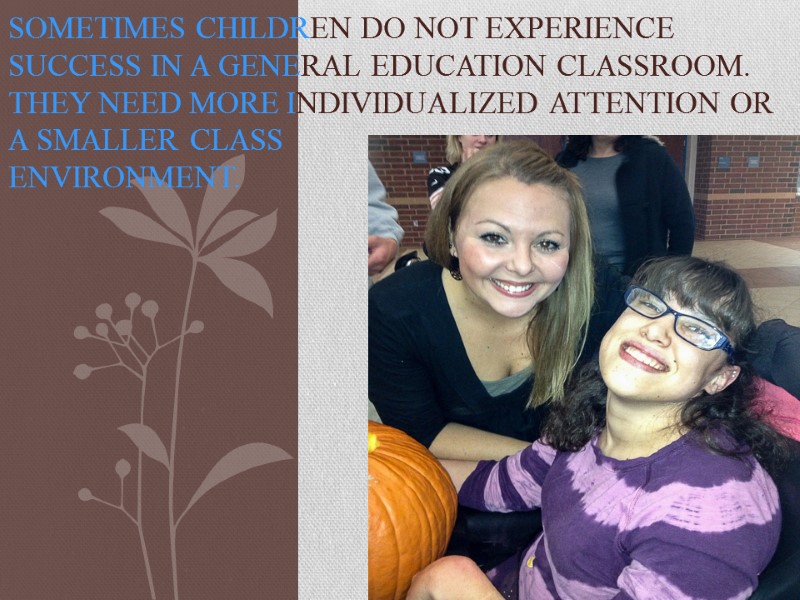 Sometimes children do not experience success in a general education classroom. They need more individualized attention or a smaller class environment.
Sometimes children do not experience success in a general education classroom. They need more individualized attention or a smaller class environment.
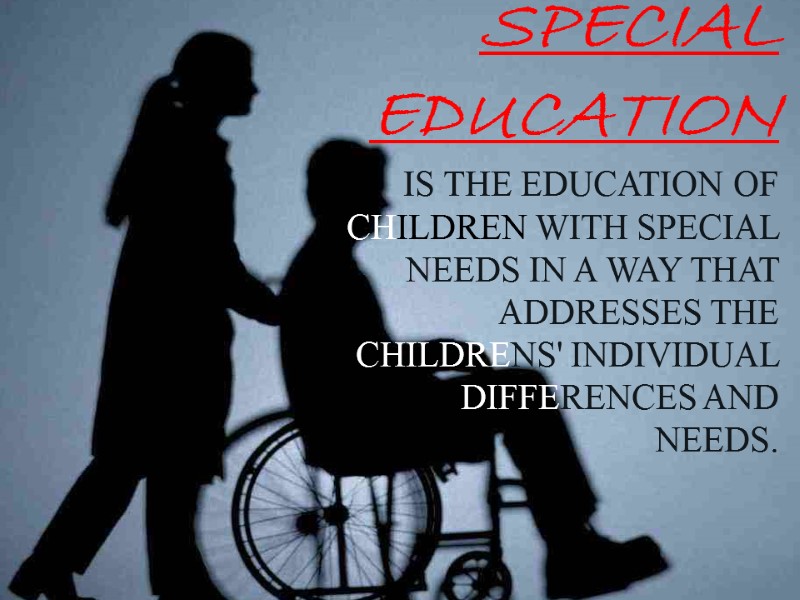 Special education is the education of children with special needs in a way that addresses the childrens' individual differences and needs.
Special education is the education of children with special needs in a way that addresses the childrens' individual differences and needs.
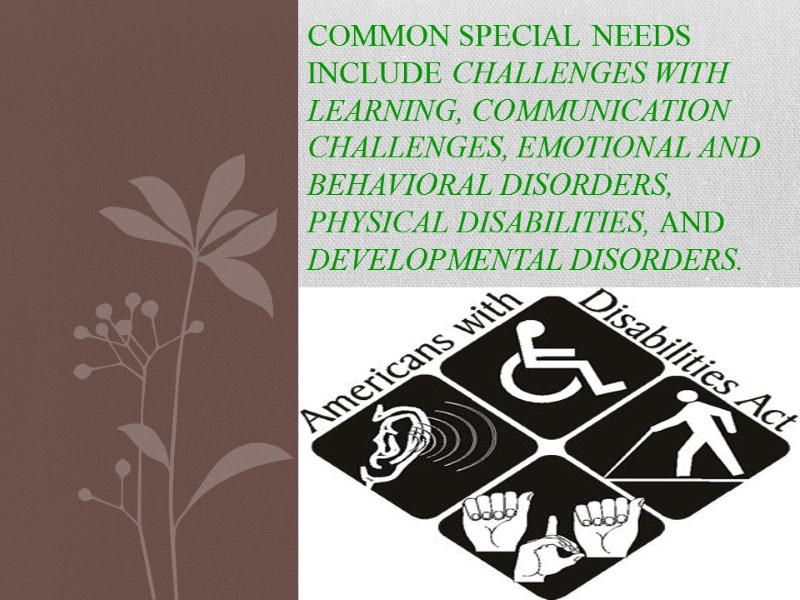 Common special needs include challenges with learning, communication challenges, emotional and behavioral disorders, physical disabilities, and developmental disorders.
Common special needs include challenges with learning, communication challenges, emotional and behavioral disorders, physical disabilities, and developmental disorders.
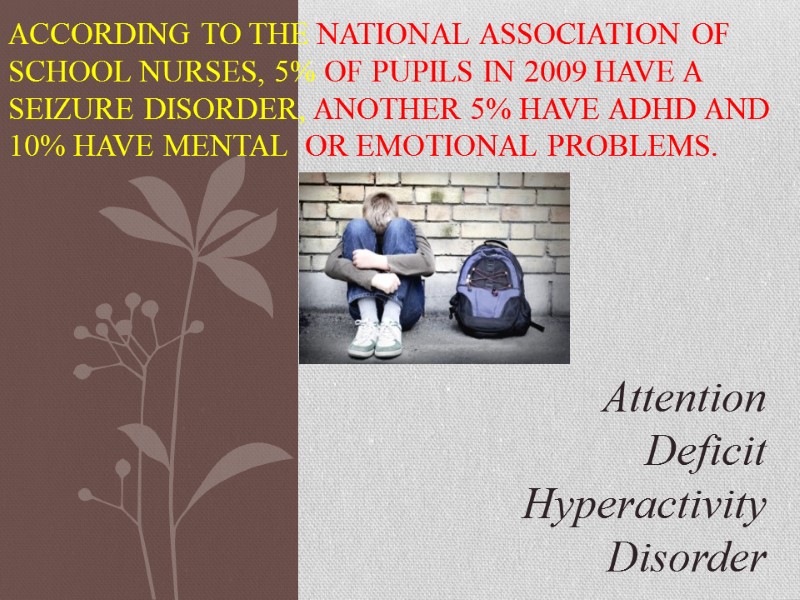 According to the National Association of School Nurses, 5% of pupils in 2009 have a seizure disorder, another 5% have ADHD and 10% have mental or emotional problems. Attention Deficit Hyperactivity Disorder
According to the National Association of School Nurses, 5% of pupils in 2009 have a seizure disorder, another 5% have ADHD and 10% have mental or emotional problems. Attention Deficit Hyperactivity Disorder
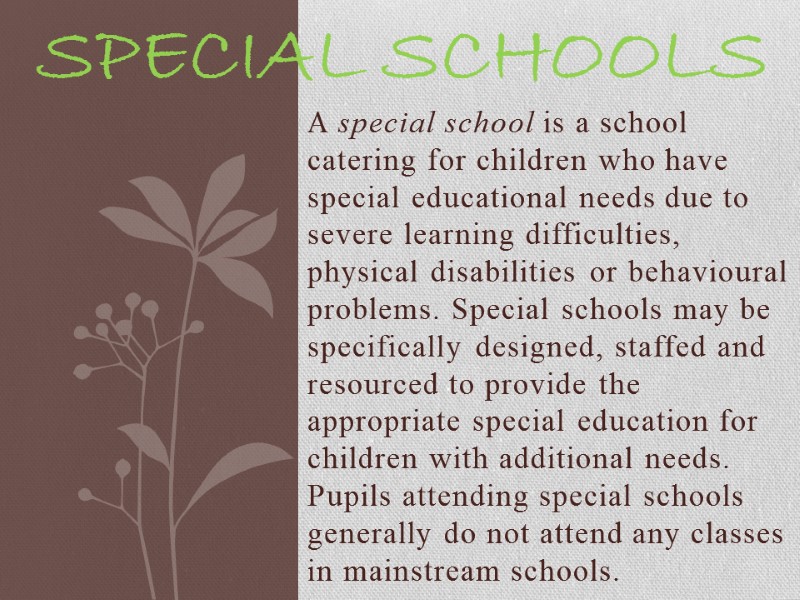 A special school is a school catering for children who have special educational needs due to severe learning difficulties, physical disabilities or behavioural problems. Special schools may be specifically designed, staffed and resourced to provide the appropriate special education for children with additional needs. Pupils attending special schools generally do not attend any classes in mainstream schools. Special schools
A special school is a school catering for children who have special educational needs due to severe learning difficulties, physical disabilities or behavioural problems. Special schools may be specifically designed, staffed and resourced to provide the appropriate special education for children with additional needs. Pupils attending special schools generally do not attend any classes in mainstream schools. Special schools
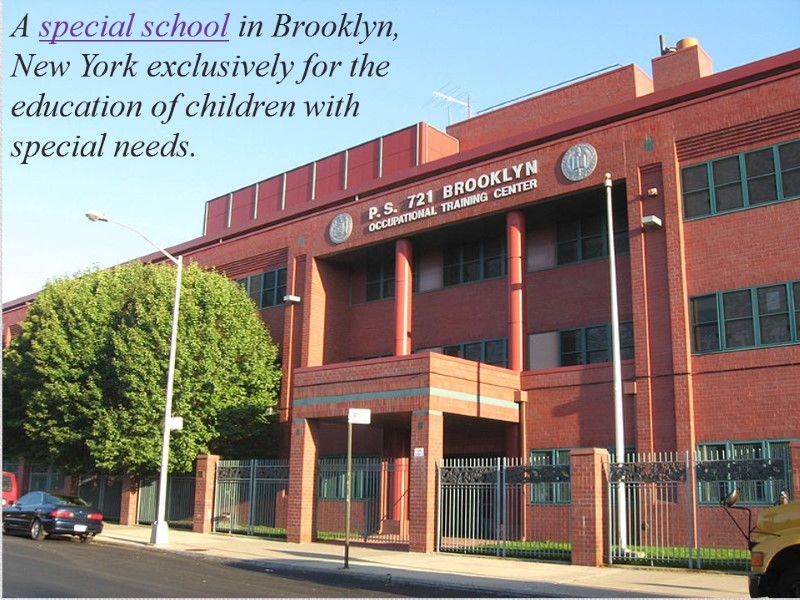 A special school in Brooklyn, New York exclusively for the education of children with special needs.
A special school in Brooklyn, New York exclusively for the education of children with special needs.
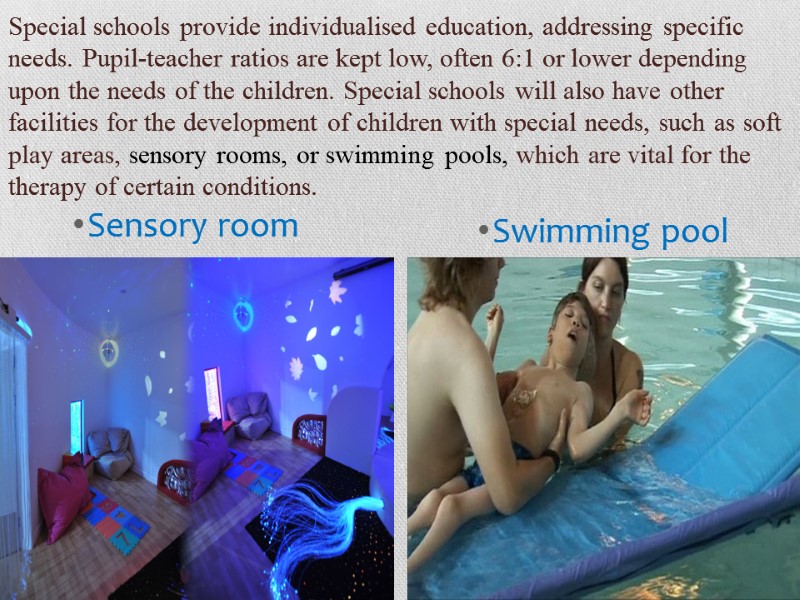 Special schools provide individualised education, addressing specific needs. Pupil-teacher ratios are kept low, often 6:1 or lower depending upon the needs of the children. Special schools will also have other facilities for the development of children with special needs, such as soft play areas, sensory rooms, or swimming pools, which are vital for the therapy of certain conditions. Sensory room Swimming pool
Special schools provide individualised education, addressing specific needs. Pupil-teacher ratios are kept low, often 6:1 or lower depending upon the needs of the children. Special schools will also have other facilities for the development of children with special needs, such as soft play areas, sensory rooms, or swimming pools, which are vital for the therapy of certain conditions. Sensory room Swimming pool
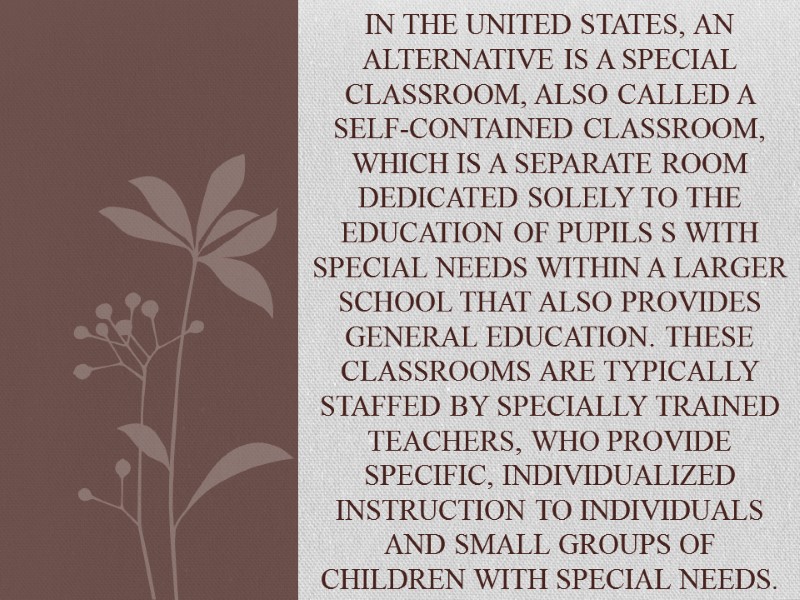 In the United States, an alternative is a special classroom, also called a self-contained classroom, which is a separate room dedicated solely to the education of pupils s with special needs within a larger school that also provides general education. These classrooms are typically staffed by specially trained teachers, who provide specific, individualized instruction to individuals and small groups of children with special needs.
In the United States, an alternative is a special classroom, also called a self-contained classroom, which is a separate room dedicated solely to the education of pupils s with special needs within a larger school that also provides general education. These classrooms are typically staffed by specially trained teachers, who provide specific, individualized instruction to individuals and small groups of children with special needs.

